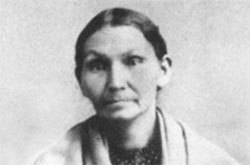
While American Indians remain per capita the smallest of the ethnic groups of the United States, their sovereign status as domestic dependent nations makes understanding the powers and jurisdictions of their governments important to modern American society. Through their AIS coursework, students will acquire sensitivity and enhanced knowledge of the diverse cultures, literature, history, treaty rights, contemporary social issues, and sovereignty of North American Indian tribes.
American Indian Studies offers academic programs that provide students with a thorough understanding of the Native American tribal nations in North America. All United States territories at one time were American Indian land; however most of it was gradually transferred to the United States of America. Treaties and other legal agreements with the first France, England and Spain, then the United States, Canada and other American governments have at various times in our history given federal governments far-reaching authority over Indian people while still recognizing the sovereignty of the more than 565 tribal nations, 12 of which are located in the state of Wisconsin. The roles that American Indians have played in shaping the creation of the state of Wisconsin, the United States and Canada, as well as their modern sovereign status, make American Indian studies essential to the understanding of North American society and culture in the twenty-first century.

A unique aspect of American Indian Studies at UWM is its connection with the Electa Quinney Institute, which has a strong focus on American Indian education-related initiatives. The Institute supports research, service, and learning opportunities for both American Indians and non-Indians interested in working with tribal communities.
To register for the American Indian Certificate or to declare completion of the certificate please contact:
Dr. Mark Freeland
Director of American Indian Studies
freelanm@uwm.edu